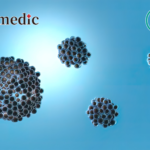
Editor's Note: In the spirit of "Healthy China, Urology First," the 2024 Annual Meeting of the Chinese Urological Association (CUDA) was grandly held in Xi'an, Shaanxi Province, from August 8th to 11th, 2024. The event showcased the latest achievements in urological medicine from a global and multidimensional perspective. In recent years, with the deepening of molecular exploration, prostate cancer treatment has entered the era of precision medicine. Urology Frontier invited Dr. Qiang Wei from West China Hospital, Sichuan University, to discuss the significance, recent breakthroughs, and future applications of precision medicine in prostate cancer.Urology Frontier:Precision medicine has become a research hotspot in prostate cancer. How do you see its value in improving the survival and quality of life of prostate cancer patients?
Dr. Qiang Wei:The development of prostate cancer is closely related to gene mutations. Numerous studies have shown that different stages of prostate cancer (including localized, metastatic castration-sensitive, and castration-resistant stages) exhibit distinct gene mutation characteristics, which affect treatment response and lay the groundwork for precision medicine in prostate cancer.
For example, inhibiting the androgen signaling pathway is fundamental to prostate cancer treatment, and targeted androgen receptor blockers have been in clinical practice for many years, bringing significant benefits to patients. However, most patients eventually progress to metastatic castration-resistant prostate cancer (mCRPC), often due to mutations in the androgen receptor. Consequently, new generations of anti-androgen drugs (such as novel androgen synthesis inhibitors or androgen receptor degraders) have entered clinical research.
In addition to drugs targeting the androgen signaling pathway, there are also therapies targeting the DNA damage repair pathway (e.g., BRCA1/2), the AKT signaling pathway (PTEN loss-PI3K-AKT), and epigenetic pathways. The development of drugs targeting these pathways offers personalized precision treatment strategies, providing effective outcomes while reducing drug dosage and side effects, ultimately improving patient survival and quality of life.
Urology Frontier:This year, major international urological oncology conferences such as ASCO-GU and EAU presented several advances in precision medicine for prostate cancer. Which of these do you see as having significant clinical application potential?
Dr. Qiang Wei:Recent research in prostate cancer treatment has seen substantial progress, particularly with PARP inhibitors related to the DNA damage repair pathway. Three large Phase III clinical trials have recently confirmed that PARP inhibitors combined with new-generation anti-androgen drugs can serve as first-line treatment strategies for mCRPC. For example, the TALAPRO-2 study showed that talazoparib combined with enzalutamide significantly improved radiographic progression-free survival (rPFS) and overall survival in mCRPC patients. The PROpel study confirmed that olaparib combined with abiraterone significantly extended survival across all mCRPC patients in the first-line setting, with the MAGNITUDE study producing similar results. Major guidelines now recommend combination treatment strategies for mCRPC patients with different disease characteristics, offering patients longer survival and better quality of life.

Director, Center for Urological Diseases, West China Hospital, Sichuan University Chairman, Department of Urology, Professor, Doctoral Supervisor Vice Chairman, Chinese Urological Association, Chinese Medical Association Vice President, Urological Surgery Branch, Chinese Medical Doctor Association Vice Chairman, Prostate Cancer and Renal Cancer Committees, Chinese Society of Clinical Oncology (CSCO) Vice Chairman, Male Reproductive Tumors Committee, Chinese Anti-Cancer Association Consultation Expert, Central Health Care Commission Director, Sichuan Provincial Clinical Research Center for Kidney Disease and Urological Diseases Chairman, Urology Committee, Sichuan Medical Association Chairman, Urological and Male Reproductive Tumors Committee, Sichuan Anti-Cancer Association President, Surgical Robotics Physicians Branch, Sichuan Medical Doctor Association


